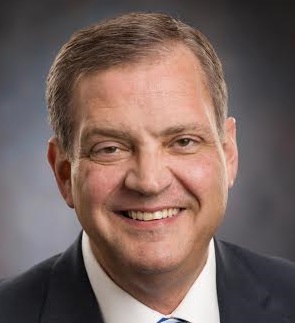By Bob Allen
A member of the committee that revised the Baptist Faith and Message in 2000 says the growing acceptance of homosexuality and same-sex marriage in moderate and liberal denominations vindicates the wisdom of including a statement on the family.
 “We don’t have a position on marriage because we want a position on marriage,” Albert Mohler, president of Southern Baptist Theological Seminary in Louisville, Ky., said in a panel discussion June 17 on preparing churches on an anticipated Supreme Court ruling legalizing gay marriage. “We have a position on marriage because it’s a part of the faith once for all delivered to the saints.”
“We don’t have a position on marriage because we want a position on marriage,” Albert Mohler, president of Southern Baptist Theological Seminary in Louisville, Ky., said in a panel discussion June 17 on preparing churches on an anticipated Supreme Court ruling legalizing gay marriage. “We have a position on marriage because it’s a part of the faith once for all delivered to the saints.”
Mohler, one of four panelists on a president’s panel discussion during the closing session of the 2015 Southern Baptist Convention annual meeting June 16-17 in Columbus, Ohio, said none of the denominations that have embraced a more liberal view on homosexuality than Southern Baptists has been a surprise.
“Not in one case have we said, ‘Wow that’s a surprise, because otherwise they hold to the inerrancy of Scripture and the exclusivity of the gospel and a biblical understanding of sin.’ That’s a reminder to us that this is all a trajectory, and the decisions that led to the collapse on this question of those other denominations and churches, were decisions preceded by abandoning the Bible as the word of God, and abandoning the gospel.”
The lesson for today, he said, is not “look how superior Southern Baptists are,” but rather: “We need to step back and say there but by the grace of God would we have gone. We nearly did.”
“We have to step back and say ‘by God’s grace this denomination was called back to the Scripture, back to the gospel,’ and we’ve got to remember every time we gather together it’s on the line all over again,” he said. “Every time a pastor stands in the pulpit, it’s on the line all over again. Every time anything’s taught in a seminary classroom, it’s on the line all over again. And we’ve got to come back again and again and again and not be embarrassed to say, these are important vital questions that we have to answer every time we are together, and we’re going to have to hold ourselves to it in order to glorify God and served Christ faithfully.”
Mohler said one way to do that is by “confessing the faith together” utilizing the doctrinal statement approved by the SBC 15 years ago drafted and recommended by a committee chaired by Adrian Rogers, pastor of Bellevue Baptist Church in Cordova, Tenn.
“If your church has not officially adopted the Baptist Faith and Message … then you don’t have a position on marriage,” Mohler said. “When someone knocks on your door and says by what right do you — they’re going to use the word discriminate — on this basis, and you’re going to say it’s in the Bible somewhere, that’s not going to be enough.”
Back in 2000, when many were criticizing revisions limiting the role of senior pastor to men and normalizing wifely submission in the home, Mohler, one of the 15 members of the BFM study committee, said some people at the SBC annual meeting in Orlando, Fla., were asking, “It’s kind of interesting that you mention marriage, but did you really have to put that in the confession of faith?”
“Well in 1925, when the Baptist Faith and Message was adopted, no one needed to say what marriage was,” Mohler said. “In 1963, when it was revised, no one had to say what marriage is.”
“In the year 2000, same-sex marriage wasn’t the only reason we had to say that this is what marriage is,” Mohler said. “We had had horrible compromise on the divorce question. We had had all kinds of compromise in terms of what our churches and in terms of the larger Christian community on some sexual and marital questions, but people already knew this one day might come, and here it is.”
Mohler said it’s not enough for a congregation to pick and choose parts of the faith confession.
“You can’t just adopt the Baptist Faith and Message statement on marriage or on the family or on sexuality or on gender,” he said. “You’ve got to adopt a comprehensive understanding that to confess the faith in this part means to confess the faith in every part.”
“Then you’ve got to work it into the policies of your organization, and I don’t mean by assuming it,” he continued. “I mean by explicitly stating it. And this has got to go all the way up from the local church to everything the local church supports and wants to see happen — Christian colleges, universities, seminaries, every agency of the Southern Baptist Convention, going on to what our state conventions and others do.”
